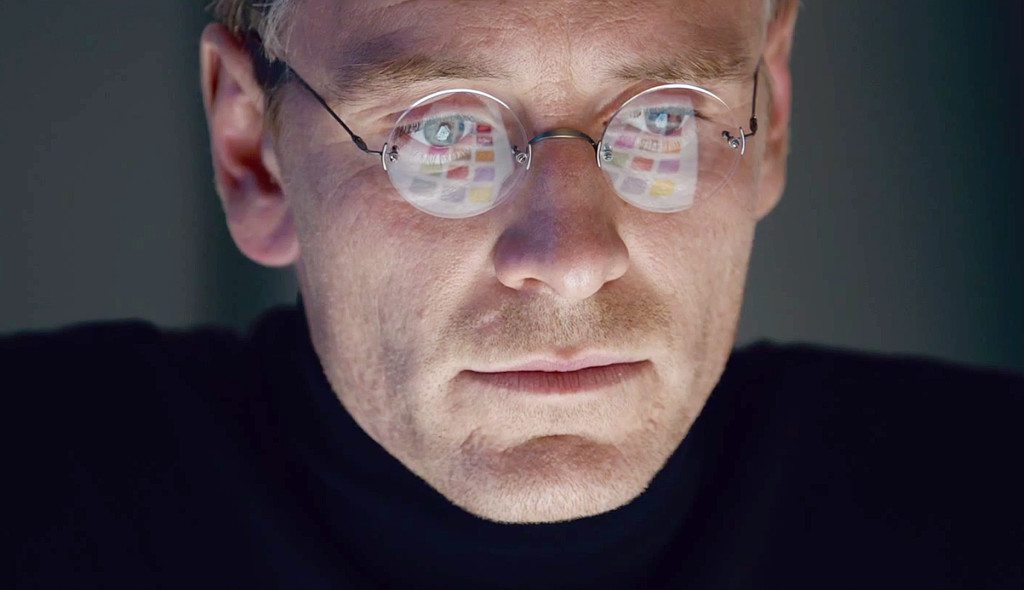First thing first. ‘Steve Jobs’ is not what you would expect it to be. It is not a biography of Apple founder Steve Jobs. I am not saying that because the film is only half-true, but due to the structure in which the film is presented in; it is more of a cinematic play than a conventional biography. To be more precise, the three-act film depicts the backstage drama that goes on between Steve Jobs and other important people in his life at the launch of three products: Macintosh in 1984, NEXT in 1988 and iMac in 1998. And as you would expect from a Aaron Sorkin written film, ‘Steve Jobs’ is dialogue-heavy, super-charged, smart and yes … awesome. I can’t think of a single film that I can compare ‘Steve Jobs’ with in terms of similarities. The best praise that I can levy upon ‘Steve Jobs’ is that it is as unique and brilliant as the subject of the film.
While many may see the film as a character study of a ruthless genius — and that it certainly is — I saw it as a story where Sorkin wanted to bring out the human side of Jobs by the end of the film. And therefore, he somehow manages to bring together all the characters, including Jobs’ daughter, at the launch of the products and writes these incredible interplays between Jobs and each of these characters. It is no secret that Jobs was a very difficult person to work with and that he cared more for his products than the people who worked for those products. The film doesn’t shy away from depicting him a sort of monster who had little emotions for people around him. But at the same time, the film also, by the end, manages to paint a heartfelt portrait of a broken man who tried to make flawless products because he knew how flawed he himself was. Whether Jobs wore a mask of this brutally cold and heartless executive or was it his actual self, nobody can tell, but certainly the film tries to suggest that beneath that stern demeanor somewhere deep down there was emotions that he had purposely chosen to hide. Certainly, the fact that his biological parents gave him up for adoption played a part in the man that he finally became.
The most touching part of the film, though, is Jobs’ relationship with his daughter. And I think, it is here that we see Danny Boyle’s directing prowess come to fore because in any other hands the scenes between the two — Jobs and his daughter — would have looked a little dishonest, especially, considering the fact that most of it may not be based on reality. Boyle’s deftness makes the scenes not only believable, but also surprisingly touching, especially, the last few minutes that may leave you moist-eyed.
While Sorkin’s writing and Boyle’s direction compliment each other in extraordinary ways, none of it would have worked if the actors hadn’t looked convincing. Michael Fassbender — in spite of not even remotely resembling Jobs — owns the film right from scene one. Sorkin’s lengthy dialogues could have been a major challenge for any less actor, but Fassbender just gives everything to the characters and gives one of the finest performances of the year, which should certainly fetch him an Oscar nomination, if not a win.
Overall, ‘Steve Jobs’ is a scintillating piece of cinema that will enthrall you with its own genius and the genius of the man on which it is based. It is not a sit-in-your-chair-and-relax kind of film, so be prepared to be challenged by long conversations and absence of any dramatic story-telling. ‘Steve Jobs’ is a no-nonsense depiction of a no-nonsense man. And it does a bloody fine job at that.

